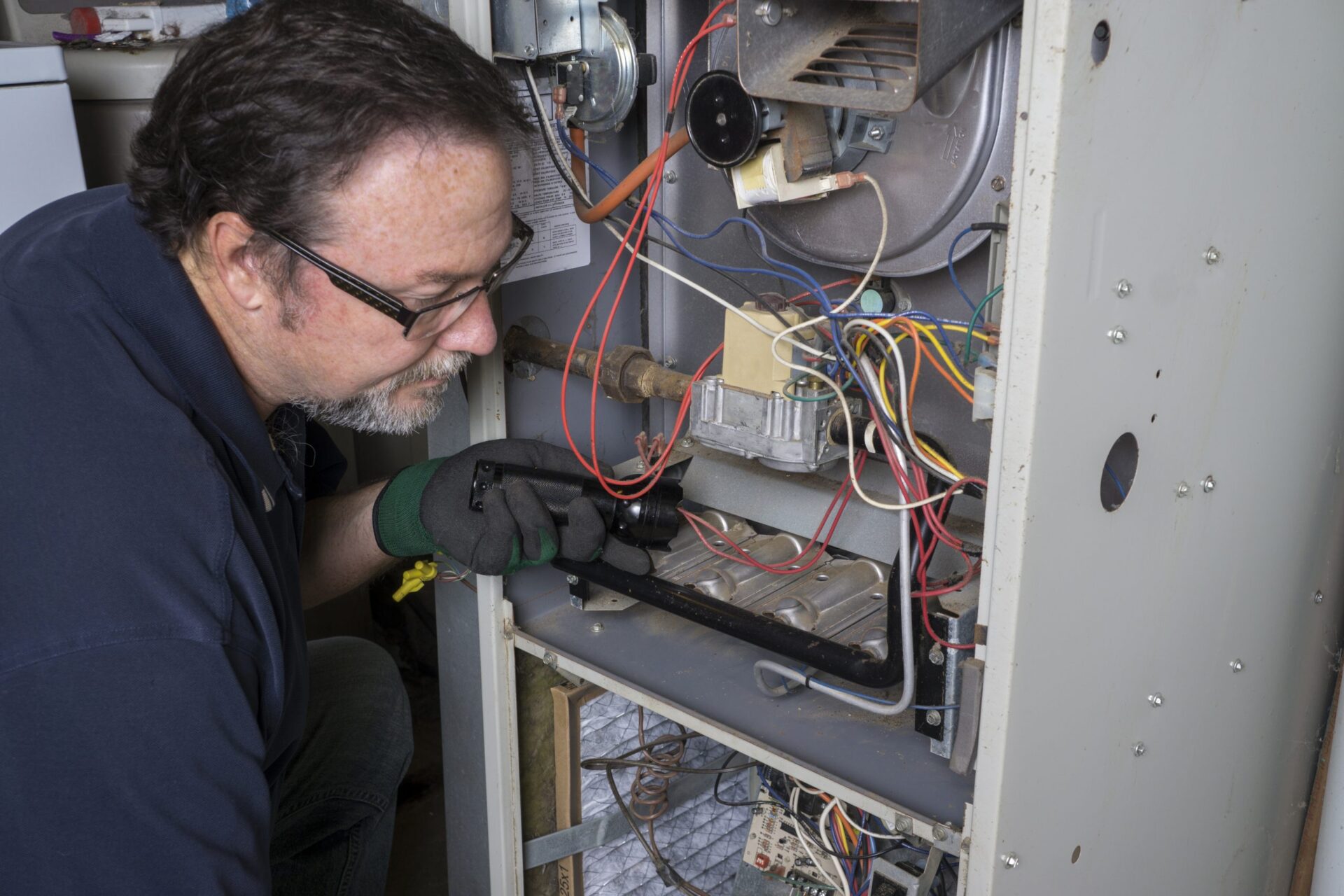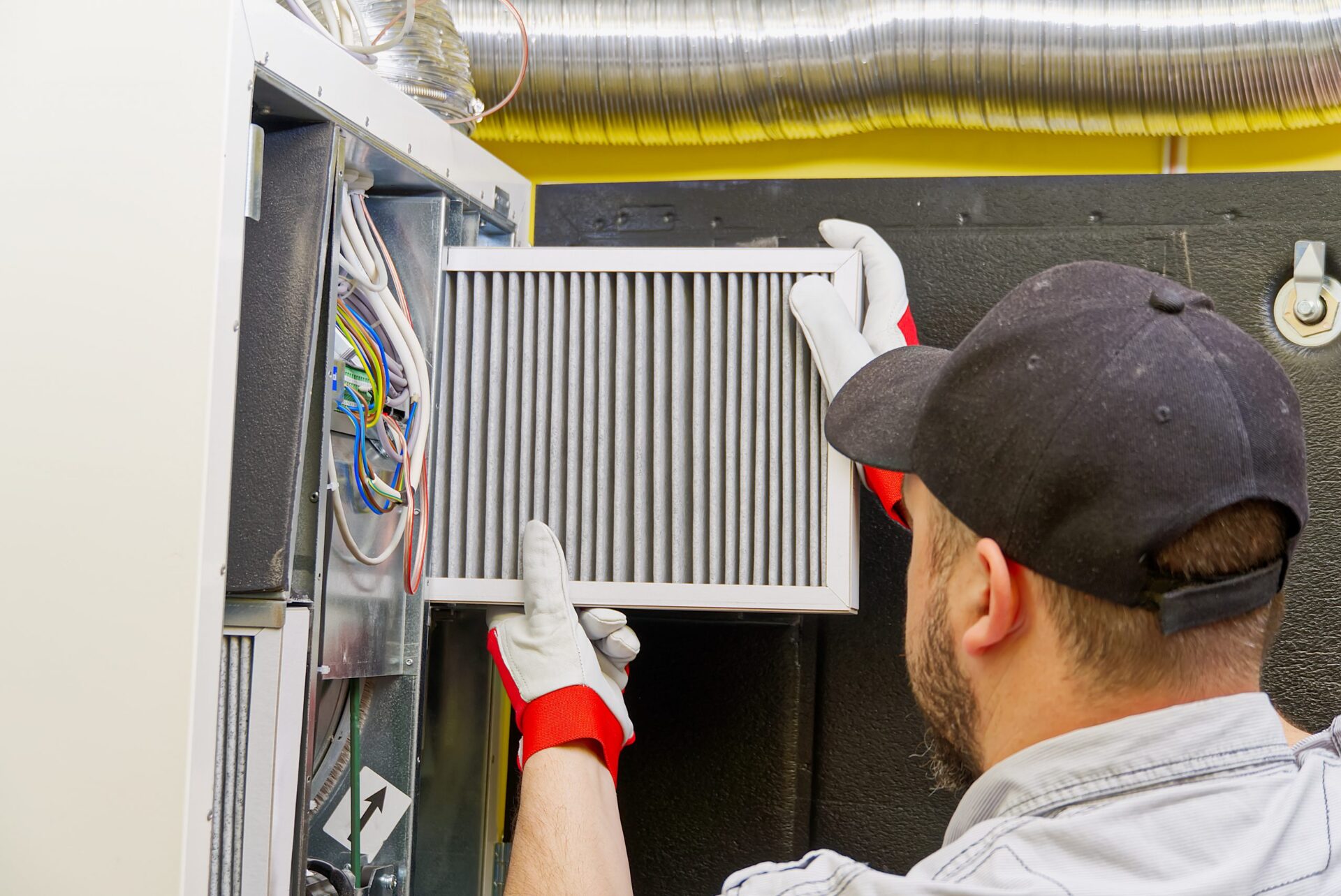Choosing the right furnace for your home is a big decision. It affects your comfort, your energy bills, and even your home’s safety. At Hoosier Indoor Air, we understand the importance of making the right choice. That’s why we’re breaking down the pros and cons of gas and electric furnaces to help you decide which is best for your Hamilton or Hancock County home.
Pros and Cons of Different Furnaces
Gas Furnaces
A gas furnace operates by burning natural gas in a combustion chamber. This process generates heat, which is then transferred to the air passing through a heat exchanger. A blower fan circulates this warmed air through your home’s ductwork and vents, effectively raising the temperature of your living spaces. The exhaust gases produced during combustion are safely vented outside through a flue pipe.
Pros
- Lower operating costs: Natural gas is typically cheaper than electricity, leading to lower monthly energy bills.
- Faster heating: Gas furnaces heat your home quickly and efficiently, even on the coldest Indiana winter days.
- Higher heating capacity: Gas furnaces generally produce higher temperatures, making them ideal for our climate.
Cons
- Higher upfront cost: Gas furnaces typically have a higher purchase and installation cost than electric units.
- Requires a gas line: Not all homes have access to natural gas.
- Safety considerations: Gas furnaces produce carbon monoxide, requiring proper ventilation and regular maintenance to ensure safety.
Electric Furnaces
An electric furnace utilizes electric heating elements, similar to those found in a toaster or electric oven. These elements heat up when an electric current passes through them, warming the air surrounding them. A blower fan then pushes this heated air through your home’s ductwork and vents, distributing warmth throughout your living spaces. Unlike a gas furnace, electric furnaces do not involve any combustion and therefore do not produce any exhaust gases.
Pros
- Lower upfront cost: Electric furnaces are generally more affordable to purchase and install.
- Widely available: Electricity is available virtually everywhere, making electric furnaces a viable option for any home.
- Safety: An electric furnace doesn’t produce carbon monoxide, eliminating that safety concern.
- Easy maintenance: Electric furnaces typically require less maintenance than gas furnaces.
Cons
- Higher operating costs: Electricity is often more expensive than natural gas, leading to higher monthly energy bills.
- Slower heating: Electric furnaces can take longer to heat your home, especially in very cold weather.
Making the Right Choice
The best choice for you depends on your individual needs, budget, and home’s infrastructure. Factors to consider include:
Availability of Natural Gas
Do you have a gas line to your home?
Upfront Budget
What is your budget for purchasing and installing a new furnace?
Long-term Costs
What are the average electricity and natural gas prices in your area?
Heating Needs
How quickly do you need your home to heat up? How cold does it get in your area?
Hoosier Indoor Air is Here to Help
Still unsure which furnace is right for you? Our expert team at Hoosier Indoor Air can help you assess your needs and recommend the best heating solution for your home. We provide top-rated HVAC services throughout Hamilton and Hancock Counties, including furnace installation, repair, and maintenance.
Contact us today for a free consultation!







